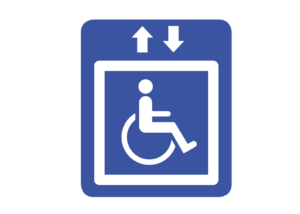HOW TO LIQUIDATE A COMPANY:
It is important to bear in mind that a company with debts cannot be dissolved (simultaneous dissolution and liquidation). If the debt is due to a pending lawsuit, the company cannot be extinguished until the debts are paid.
Should the company be liquidated (extinción) with outstanding debts or should debts arise in the future (as a result of a judicial proceeding, for example), the company and the liquidator will be held liable for the debt. As such, if there is a causal link between the liquidation and the non-payment, and the closing of the company prevents the payment, this will give rise to liability and the creditor will be able to claim from the company and from the liquidator.
HOW TO carry out the INSOLVENCY PROCEEDING OF A COMPANY:
The only correct way to close/terminate/liquidate a company which has outstanding debts remaining is through an insolvency proceeding. The insolvency proceeding serves to liquidate and to convert into money all of the assets of the company in order to be able to pay the creditors of the company, as far as is possible.
LIQUIDATION phases:
The dissolution process can be initiated (on the grounds of losses, as established by prevailing legislation), the liquidator can be appointed and, for example, the company will have to wait for the completion of the current legal proceedings before it can be definitively liquidated (extinguished). Therefore, the company would be dissolved in two phases:
- Dissolution phase (minutes of the shareholders' meeting, appointment of the liquidator, notarised deed and Commercial Register).
- Liquidation phase (minutes of the shareholders' meeting, final liquidation balance sheet, notarised deed and Commercial Register).
REQUIREMENTS TO PROCEED WITH THE LIQUIDATION OF A COMPANY:
Between Phases 1) and 2) the liquidator's obligations are basically the following:
- Draw up an inventory and balance sheet of the company.
- Conclude pending transactions and carry out any new transactions necessary for the liquidation of the company.
- To collect the company's receivables and pay the company's debts.
- To keep the company's accounts and to keep and safeguard the company's books, documents and correspondence.
- To dispose of the company's assets.
- Periodically inform the shareholders and creditors of the state of the liquidation.
RESPONSIBILITIES OF THE LIQUIDATOR OF A COMPANY:
The responsibilities of the liquidator are similar to those of the director (administrador).- They must draw up the company's balance sheets
- They must conclude the pending transactions
- They must keep the accounts
- They must convene meetings to comply with the obligations of the Commercial Registry.
- They must carry out the liquidation operations
- They must collect the receivables and passive dividends.
- They must negotiate and arbitrate when necessary.
- They must pay creditors and partners.
Commercial consultancy for company closure:
The Conesa Legal team includes experienced corporate lawyers and fiscal specialists who can advise you throughout the whole life of your company, including its closure. Get in touch to find out how we can help you:






